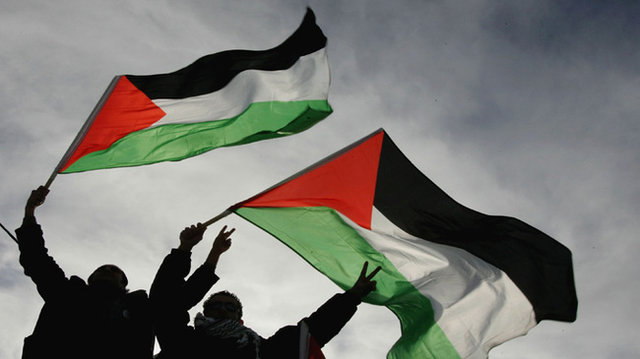Recently, in one of the security incidents, more than five major cities of the Zionist regime, including Hazor, Gedera, Yavne, Rehovot and Haifa, were plunged into widespread blackouts for a while, completely disrupting the life of the residents of those areas.
The aforementioned events and “remote control explosions” which have not been recorded so far, have caused the Zionist regime to increase its alert level to an unprecedented level, and even put all public transportation lines on full alert. The remarkable point is that the heads of the Zionist regime have prevented publication of the full news of those events in the public media and broadcast the news of the incidents with censorship!
But recent developments in the Occupied Palestine can be analyzed from two aspects:
First; it is a natural “reaction” with new methods and initiatives against the continuing crimes and terrorist actions of the Zionist regime against the Palestinians, which has made 2022 the bloodiest year for the occupied Palestine since 2006! The number of Palestinian martyrs and victims from the beginning of this year to Saturday, December 3 has reached 211 people, of whom 153 are from the West Bank and 52 people from the Gaza Strip.
The crimes of the Zionist regime and the killing of the Palestinians have increased so much in recent weeks that in one case, 10 Palestinians were martyred in just 72 hours. In this context, even the European Union has reacted to what it called “Israel’s excessive use of lethal force” and called for an investigation in this field.
Second; the new and mixed battle of the Islamic resistance is a “deterrent” measure to prepare prevention of any possible crimes in the future, which may escalate with the formation of a new cabinet in Tel Aviv.
In this regard, the “mixed battle” in the field of hardware, in which all Palestinian groups from Hamas and Islamic Jihad to emerging and powerful groups such as “Aren Al-Aswad” and “Al-Kahf Al-Aswad” participate, is directly related to Benjamin Netanyahu’s return to power.
Netanyahu, who is considered as a terrorist and extremist figure and has committed a criminal act in the massacre of the oppressed Palestinian people, has a strange belief in advancing his goals and interests through crisis-making, war-mongering and murder in the region and Islamic countries. He does everything to divert the attention from the main issue of “occupation” and to other issues in the region and the Islamic world.
Considering the current trend and the insistence of the Zionist authorities for any reason, including desperation and helplessness, etc., to continue terrorist acts against the Palestinians, it is expected that the current atmosphere in the Occupied Territories will intensify and be accompanied by important consequences.
In relation to the strategic consequences of the recent incidents and developments, it should be emphasized that, firstly, the costs of the Zionist regime will increase in the fields of security and subsequently in other dimensions of existence, including political, economic and social.
Secondly, at the level of public opinion of Israel, which is currently involved in many issues and sufferings, it will cause the increasing spread of insecurity and terror and the effects and results affected by it. This issue can have many negative consequences in the political, social, military, economic and internal security trends of the Zionist regime.
Thirdly, with the intensification of the Zionist regime’s intelligence and security failure process, on the eve of Netanyahu’s return to power, which seeks to form a completely security and aggressive cabinet, it will act as an important deterrent factor and an obstacle in the way of advancing Netanyahu’s extreme policies.
Fourthly, by opening up the space and creating a suitable platform, it will facilitate and accelerate the formation process of the new Intifada (the third Intifada). In this context, “Tamir Hayman”, the former head of the intelligence services of the Israeli army, said that there are clear signs of the beginning of the third Palestinian Intifada. He emphasized that there are indicators and signs that cannot be ignored, and these indicate the occurrence of the third Palestinian Intifada with unprecedented features and dimensions.
And finally, with the creation of a new conflict for the Zionist regime in the Occupied Territories, the plan to transform the process of “normalization” of relations between some Arab countries with the Zionist regime into “coalition building”, which is being pursued on the sidelines of the focus of the public opinion of the region and the world on the World Cup will face a challenge. It is worth mentioning that since the past months, the Zionist regime has been seeking to form a united bloc of Arab and non-Arab countries in the region in order to fill in the vacuum of shifting the US focus from the region to confronting Russia and China.
Just as no crime has gone unanswered in the occupied Palestine, the Palestinian resistance groups, as promised, will not sit idle in front of the terrorist and racist acts of the Zionist regime. The fact that the Palestinian resistance has threatened to death “Itamar Ben Gower”, an extremist member of the Zionist Knesset and a candidate for the post of the Ministry of National Security in Benjamin Netanyahu’s cabinet, is an issue that should not be underestimated; this means raising the level of offensive and deterrent measures of the resistance groups and extending it to the Zionist cabinet and putting its senior members on the “revenge” list.










0 Comments